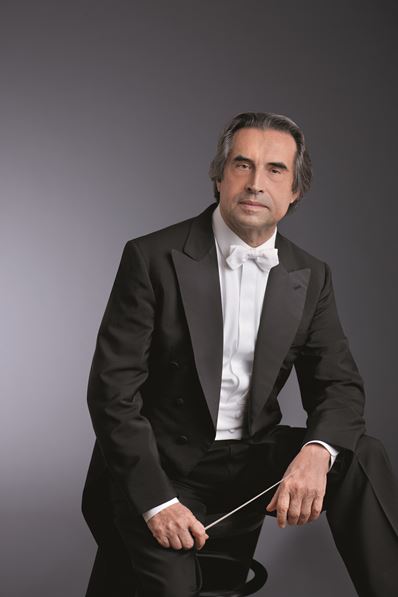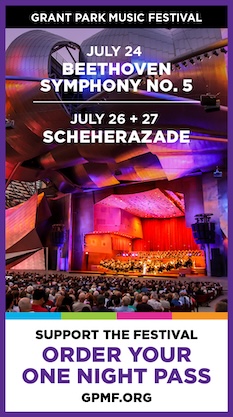Muti closes CSO season with operatic blood and thunder, Italian style

Riccardo Muti usually elects to close the Chicago Symphony Orchestra season with big dramatic symphonies, including works by Bruckner, Tchaikovsky and Mahler in recent years.
This season the CSO’s mercurial music director is going a different route with a program of the music that is closest to his heart—Italian opera.
Budget limitations in this tour-heavy season prevented CSO concert performances of a complete opera as in years past. Instead, Thursday night’s season finale at Symphony Center offered a grab-bag of overtures, intermezzi, choruses and one extended opera scene to close.
With Muti whipping up the volume and intensity to cataclysmic levels, the hemorrhaging chunks of verismo at times left one feeling a bit weary and overstuffed–like regret over taking that last slice of deep-dish pizza.
Still, Muti is close to unassailable in this repertory, and the polish and impassioned commitment of the performances undeniably brought ample blood and operatic thunder to close the orchestra’s 126th season.
The evening’s first half was given over to Giuseppe Verdi, leading off with the Overture to Nabucco. The crashing tutti chords and insistent main theme put across the opera’s Biblical drama powerfully, yet it was the rounded nobility of the three trombones in the opening section that stayed in the memory. Similarly, in the Overture to I vespri siciliani, while the final section went with all due explosive intensity, one was grateful for the contrasting balm of the gracious woodwinds and airy delicacy of the cellos.
The four Verdi vocal excerpts made a sort-of choral symphony with weighty first section (opening chorus of Nabucco), slow movement (“Va, pensiero” from Nabucco), scherzo (Anvil Chorus from Il Trovatore) and dramatic finale (“Patria oppressa!” from Macbeth).
If the Hebrews’ famous chorus from Nabucco was more graceful than affecting, the surrounding works were delivered with strikingly rich sonority and dramatic involvement by the Chicago Symphony Chorus. Duain Wolfe’s ensemble conveyed the Levites’ imploring prayer as gently as the imposing blast of the full final chorus. Though unaided by the tinny “anvils” placed at either side of the stage, the singers made an aptly swaggering band of gypsies, and brought a widely terraced array of dynamics and expression to the refugees’ chorus from Macbeth.
After the monumental hyper-intensity of the Verdi excerpts, one was relieved to hear opera’s most famous intermezzos (from Puccini’s Manon Lescaut and Mascagni’s Cavalleria rusticana) after intermission. Muti drew out the big arching themes with elegance and unapologetic ripeness, eliciting glowing tone from the CSO strings. In the Mascagni Intermezzo in particular, Muti drew wondrous delicacy from the violins, building to a grandly resplendent climax, subtly accented by organ.
The Prologue to Boito’s Mefistofele made a showy and brilliant finale to the evening. Scorned for its forward-looking harmonies and ample use of dissonance by Verdi and others in its time, the lavish scoring and offbeat style now make this operatic preludium seem fresh, strange and compelling, albeit unwieldy and difficult to stage in the theater.
Muti was at his charismatic best in this extravagantly scored 26-minute scene, balancing the vast forces with characteristic precision and transparency, from the offstage trumpets and eruptive drama to the massive coda for chorus and orchestra.
One can imagine the budget conversations over flying Riccardo Zanellato in from Italy for around five minutes of music in this scene. Still, the Italian bass brought a strong voice with an apt bit of grain to Mephistopheles’ mocking and fulminations.
Here too, the Chicago Symphony Chorus were the stars of the evening–duly celestial as Heavenly Hosts, conversational in their exchanges with Zanellato’s devil, and fluently rising to a shimmering, heaven-storming final chorus. The Chicago Children’s Chorus under Josephine Lee, contributed their part, singing with apt pure-toned innocence as Cherubim.
________
This week’s CSO concerts are dedicated to the memory of Philip Gossett, who passed away earlier this month. Professor of musicology at the University of Chicago and the Sapienza University of Rome, Gossett was an internationally renowned scholar of Italian opera, whose painstaking research and editions of Rossini and Verdi works will continue to pay dividends for music professionals and audiences for many years to come.
The program will be repeated 8 p.m. Saturday and 3 p.m. Sunday. cso.org; 312-294-3000.
Posted in Performances

Posted Jun 25, 2017 at 7:57 pm by Jack Lewitz
This performance by CSO was spectacular ! It included Chicago Symphony Chorus , Children Chorus , baratone , organ , two harps and percussion and was full of energy . Muti is in his elements with Italian opera .